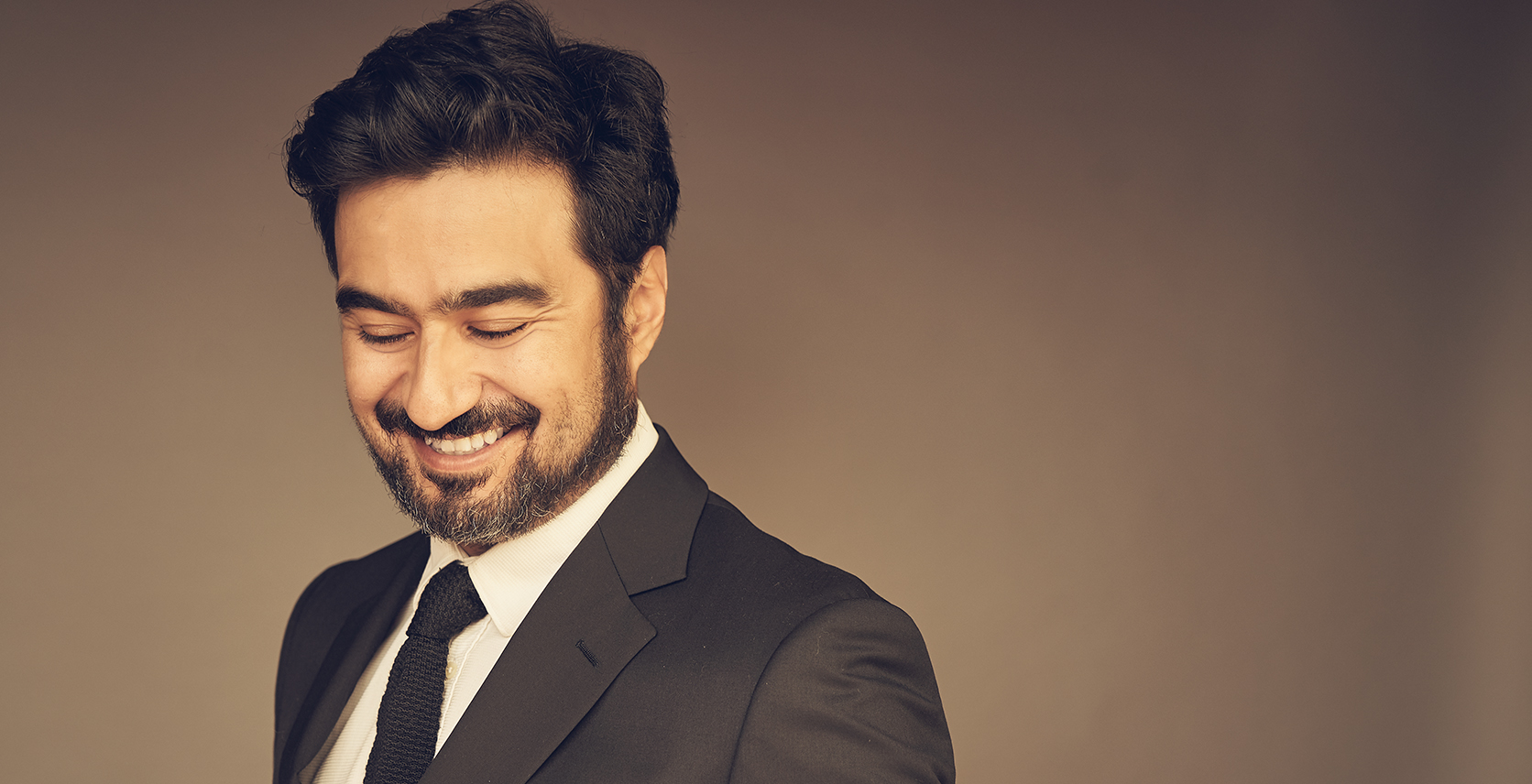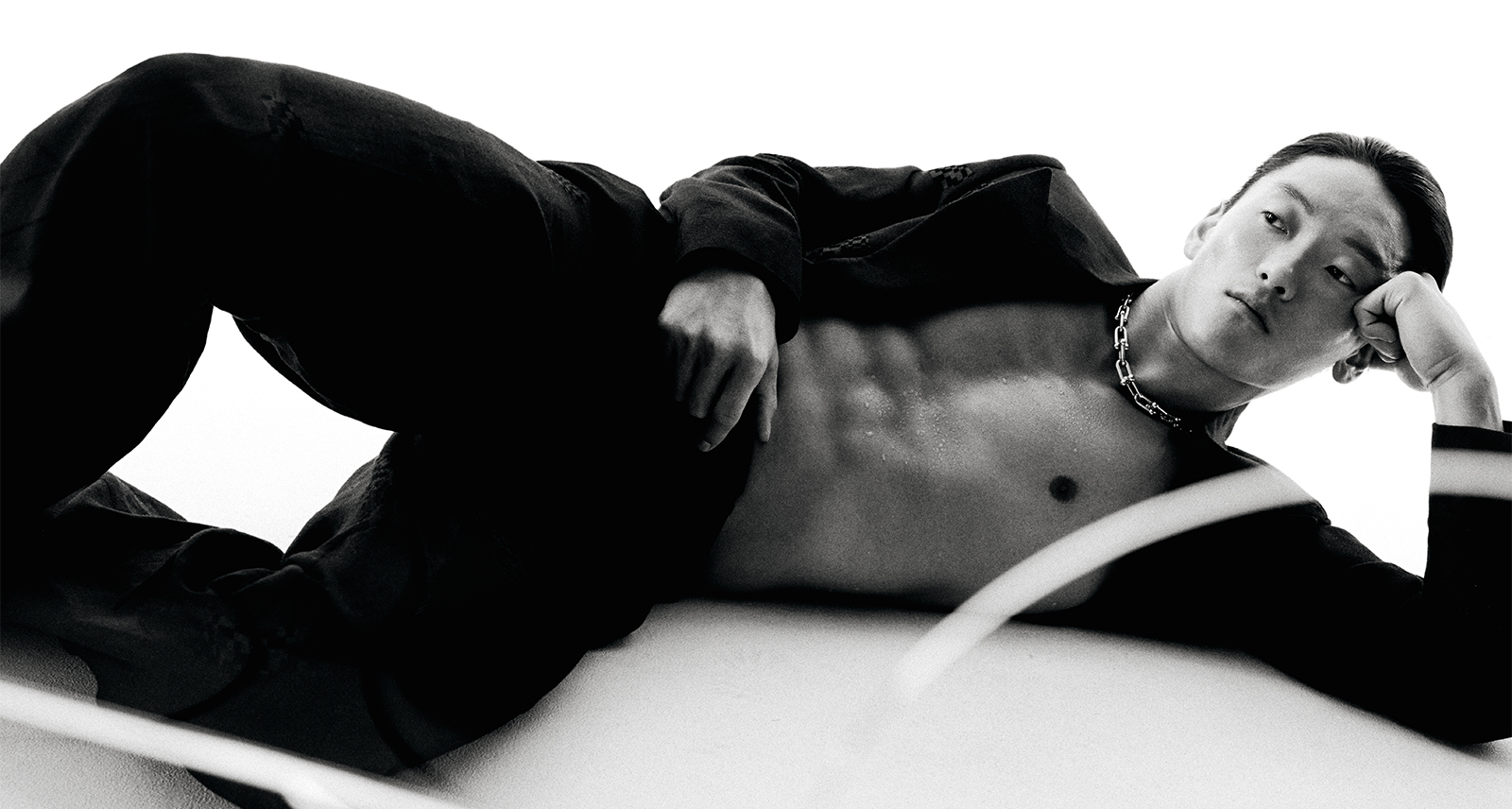Meet Fajer Kaisi, The Breakout Star of ‘The Report’
If Fajer Kaisi ends up in the cast of a future Marvel film, he’ll be the rare superhero actor who could illustrate his own comic. When he’s not acting, drawing characters like Spider-Man and Wonder Woman is one of Kaisi’s favourite pastimes.
Unfortunately for fans of his Instagram artwork, Hollywood is keeping Kaisi fully booked. You might already recognize him from appearances on popular shows like Nurse Jackie, Law & Order, or The Good Wife. Or perhaps he’s read you an audiobook on Audible. But if you missed all of those, you’re about to see the stage, film, and voice actor hit the big screen in a very big movie.
Kaisi stars alongside Adam Driver and Jon Hamm in The Report, now streaming on Amazon Prime. The film, based on a true story, follows the Senate Intelligence Committee as they investigate the CIA’s use of torture on terrorist suspects following the September 11 attacks.
Although Kaisi might not believe in “big breaks,” this is definitely an important, high-profile role for him. At this rate, spandex tights seem all but inevitable. We spoke with Kaisi to hear about The Report, him fan-boying over his A-List co-stars, wanting to break the chain of typecasting, and his everlasting passion for storytelling.
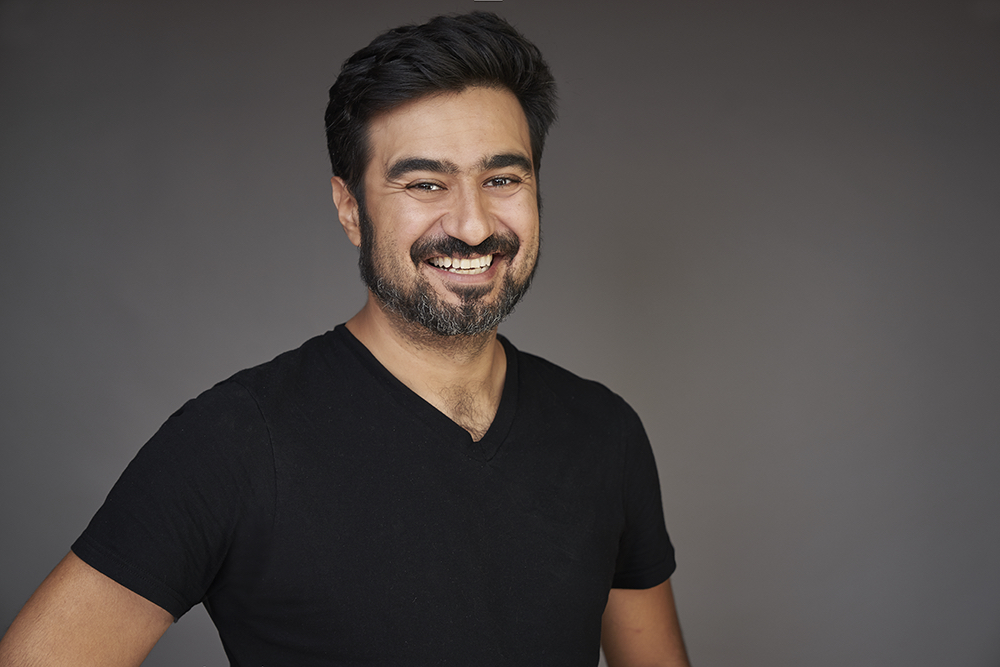
Would you consider The Report your “big break?”
It certainly is one of the more higher profile projects I’ve been involved with, but I don’t know that I believe in big breaks anymore. That myth’s sort of been debunked for me. The Report is a very important film. I was positioned in the right place to be seen by Scott [Scott Z. Burns is the director, producer, and the screenplay writer]. And I’m glad that he gave me the opportunity because I think Ali — Ali Soufan, the character I play — it’s no surprise he was underrepresented as a sort of a hero who figured out who the mastermind of 9/11 was, through traditional interrogation methods. And he’s sort of presented as the voice of reason in the film. In contrast to what’s happening with enhanced interrogation documents, which is what the film tracks.
What was it like working alongside big stars like Jon Hamm and Adam Driver?
You know, it was cool, but I think the way to keep yourself sane and not fanboy-out — although there are moments when I have had that impulse — is to just keep your head down and do the work, which is a lot of times what they’re doing, too.
What do you think has been your most meaningful role to date?
Amir in the play Disgraced made a huge impact on me. Ayad Akhtar [the playwright] won a Pulitzer Prize and it’s about this Pakistani-American lawyer who has a fall from grace. A combination of Islamophobia and self-loathing and all the stuff that we don’t talk about in our community. It’s executed well, and with enough compassion for all the people involved. I think it could be a real telling experience.
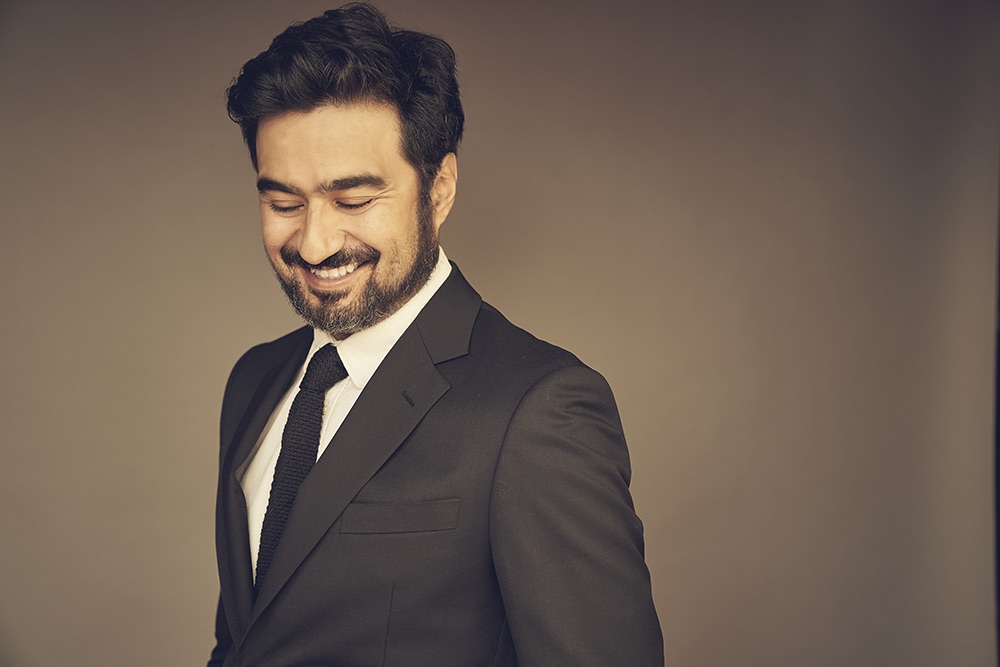
You’ve spoken about your struggles with getting typecast. Is that frustrating for you or do you take these opportunities and spin them to your advantage?
I mean it’s both, right? They’re not mutually exclusive things. It is frustrating, and I try to make the best out of it. But I also feel an obligation and a sense of accountability, when I get a Muslim or Arab-American or even Desi, or any kind of ethnic character. I feel a responsibility to do it the most justice, when I get it. I also would like for casting to be able to see us the way they see white characters, which is as a blank slate. That’s the thing that I find is frustrating and hard to communicate — it’s this idea that we want to have access to the “Michael” character that’s an accountant…he doesn’t have to have his name be changed to Omar. It doesn’t reflect reality anymore — that particular exercise that we do that’s like oh ‘well you know he has to be an immigrant or he has to be the son of an immigrant.’
Ultimately, there is that, but in the meantime I do recognize that it’s kind of our turn in the barrel with geopolitics and the world going through what it is. I think I always want to aim for looking for more compassionate ways to look at the issues and the problems because it’s all just people at the end of the day. I think that storytelling is a forum for empathy. We sit in a dark room and we identify with a person on the screen or on the stage and we feel what they feel, or that’s the goal. So I would love for that to include us brown, Arab-, Muslim-Americans/Canadians eventually a little more rather than frame us as “outsider” or “stranger” or whatever.
What drove you to become an actor?
I think I’ve always had a passion for storytelling. But I think acting came to me as a happy accident later in life. I only took the stage for the first time at 17. Which is relatively late compared to a lot of the folks I know in the business. When you think about like Christian Bale who was in Empire of the Sun at age nine. There’s this kid in our play right now who’s amazing. He’s 12 or 13 and he’s on his way and I can see it. I always had an interest in storytelling, but I don’t think I knew what it was going to manifest into. I think I wanted to be a writer at one point, or a comic book artist, or some kind of storyteller in that way. And they all kind of combine and feed each other eventually.
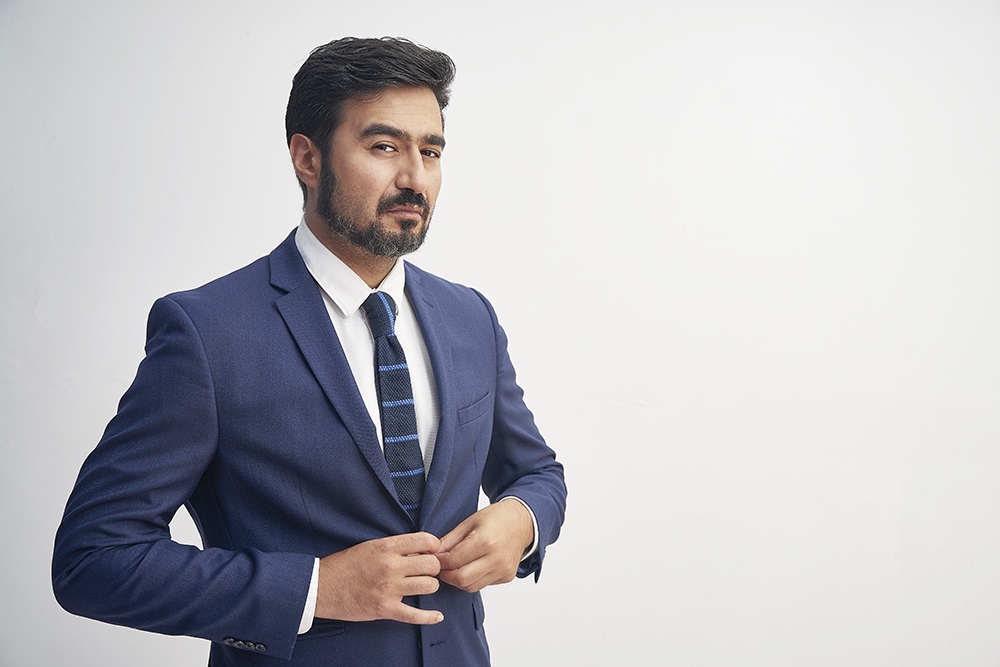
I took a look at your Instagram and you’re quite the talented illustrator — is it something you ever considered doing professionally?
Oh you know, no. It’s still in there, it’s still a dream. I still have some sketches and some comic book ideas that I want to get out there and eventually find the time and skill I need to you know, work. I feel I need to get better. I’ve always drawn inside of scripts and doodled through everything. So it just sort of feels like an expression of my subconscious. It’s sort of happening if I’m relaxed or it helps me to relax also. And now, I guess I re-dedicated to it after a pretty bad break-up actually. I decided to make it a focus and am trying to do a drawing a day. Just kind of work on myself, and it has really helped. It feels like it’s a way to keep the right brain active. When I’m not acting or thinking about something like that or doing something creative.
You were born in Iraq, moved to Montreal, studied in Texas, and now reside in New York. How did it shape your career to live all over the map?
It’s a very good question and I don’t know. I feel like I have a bit of a wandering soul. Or maybe I’m just trying to one-up my parents. You know they immigrated, so I’m going to do it. But obviously the move to Canada wasn’t my choice. But you know, it becomes a part of you, this idea of “nomadism” or settling somewhere else — and we moved a lot in those first few years. Maybe that’s in my DNA too. Just a lot of changing houses in Montreal until finally settling on the South Shore and then in downtown Montreal.
I don’t know if I have a favourite. New York is singular in the experience of living there. There’s no place like it and I feel like a New Yorker, although it does have its pros and cons, right? It’s expensive, it’s crazy making… it’s sometimes so overstimulating that you have to like put a blanket over your head and rock softly in a corner.(Laughs) But it’s also an amazing city where anything can happen and that is still blowing my mind, 10–12 years in. Austin was really great to kind of come up in and have an artistic experience, and I was thinking about this the other day. I remember doing a staged reading of some random new playwright’s work on a stage that Tina Turner had debuted on and I was like, ‘whoa.’ Like that’s humbling. You can feel that and I don’t think the scene we did was very good or I don’t remember much of it but the idea that you have that experience in that play, it informs what I think of the arts. And it’s just kind of my temple, a little bit…concert halls and theatres.
